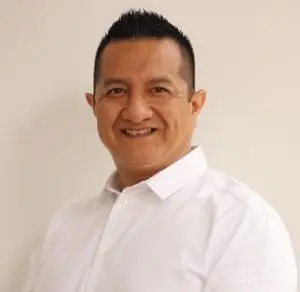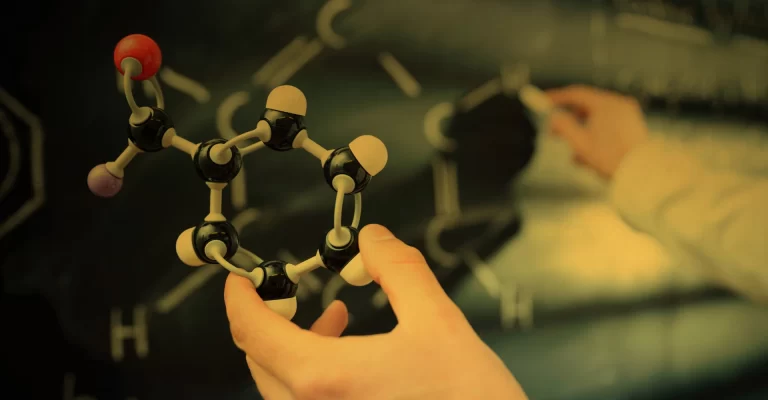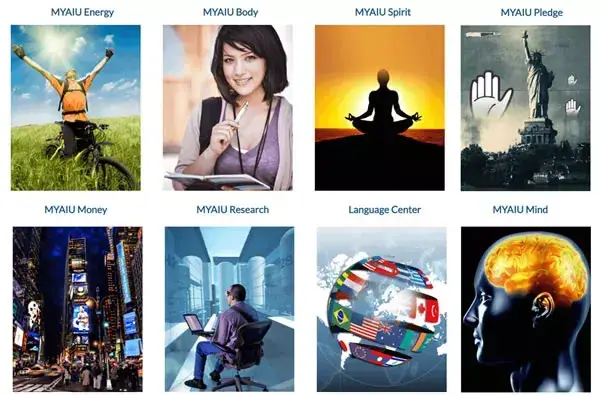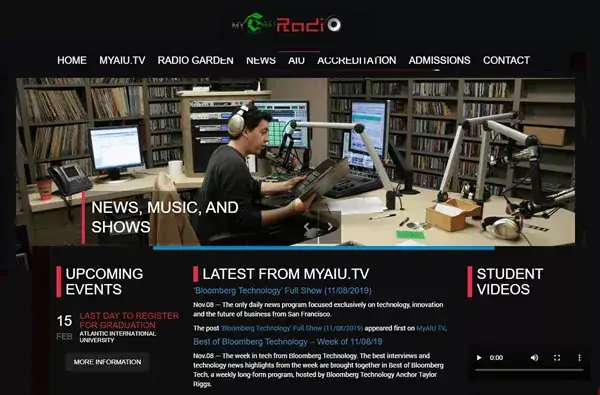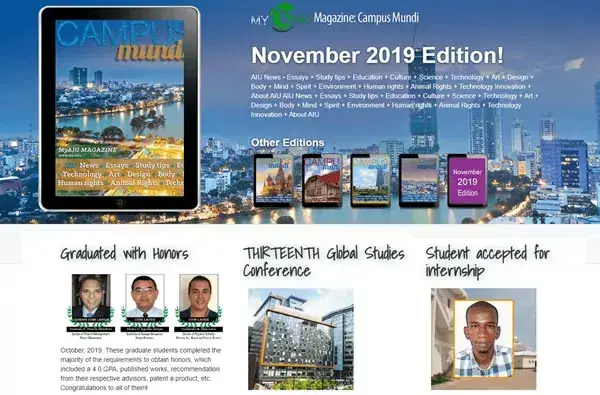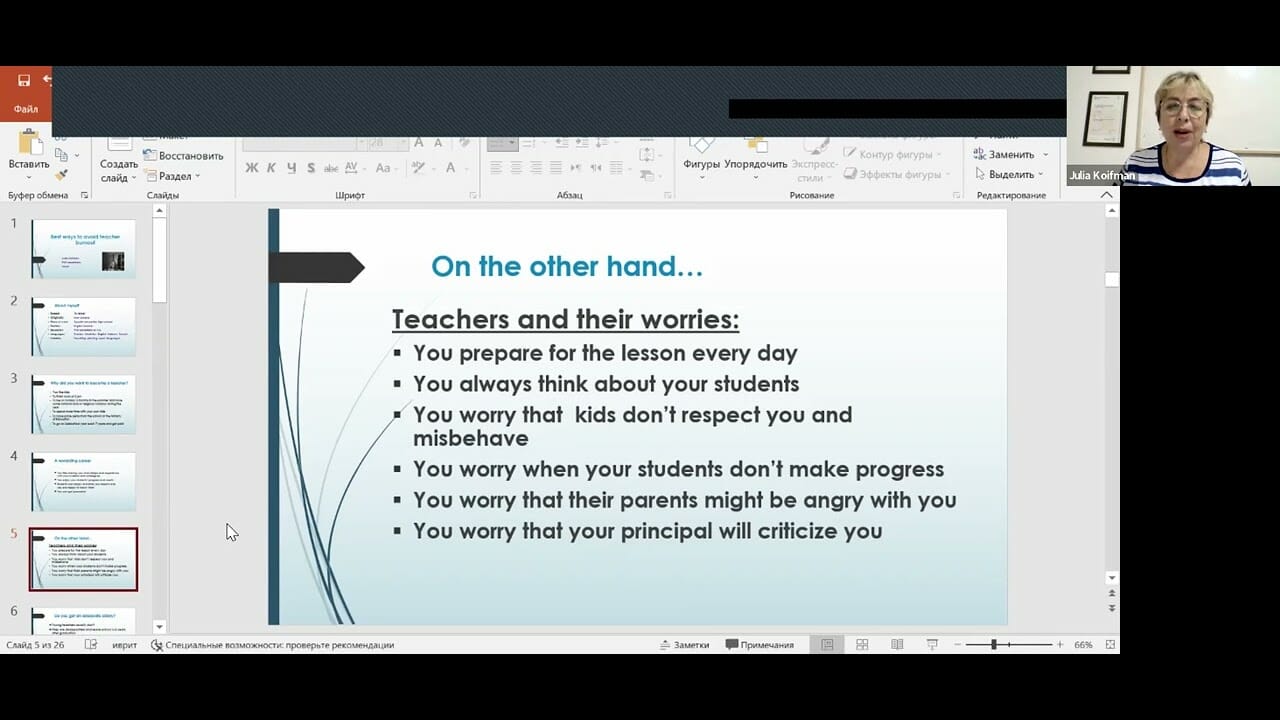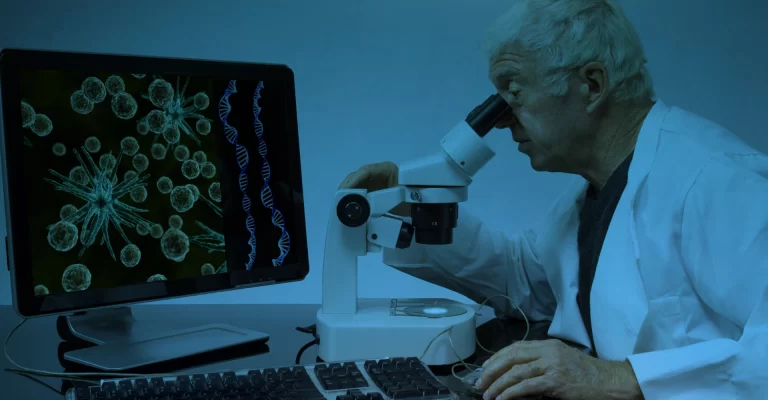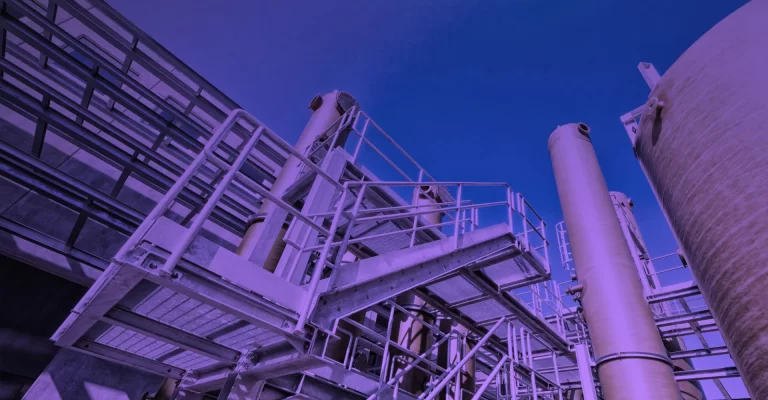- RESEARCHDistance Learning at AIU is enhanced by vast academic resources and innovative technologies build into the Virtual Campus: Hundreds of self-paced courses with video lectures and step by step lessons, thousands of optional assignments, 140,000 e-books, the Social Media & Networking platform allowing collaboration/chat/communications between students, and MYAIU develop students holistically in 11 areas beyond just academics.
- PROGRAMS OFFERED
- Areas of Study
- Courses and Curriculum
- Open Courses
- Register for a Program
- Certificate Program
-
Associate program
- Associate in Actuarial Science
- Associate in Addiction Counseling
- Associate in Agriculture Food And Resources
- Associate in Animal Science
- Associate in Anti Terrorism Security
- Associate in Behavior Analysis In Special Education
- Associate in Bioethics
- Associate in Biosystems
- Associate in Blockchain Technology & Digital Currency
- Associate in Business Communication
- Associate in Business Management
- Associate in Chemistry
- Associate in Climatology
- Associate in Cloud Computing
- Associate in Computer Engineering
- Associate in Computer Programming
- Associate in Computer Science
- Associate in Criminal Justice
- Associate in Culinary Arts
- Associate in Cultural Theological Communication
- Associate in Cybersecurity And Hacking
- Associate in Data Communication And Networking
- Associate in Database Administrator
- Associate in Early Childhood Education
- Associate in Ecotechnology
- Associate in Ecotourism
- Associate in Education
- Associate in Educational Technology
- Associate in Electric Vehicle Engineering
- Associate in Electrochemical Engineering
- Associate in Electronic Engineering
- Associate in English Literature
- Associate in Environmental Science
- Associate in eVTOL Engineering
- Associate in Fashion Design
- Associate in Fine Arts
- Associate in Foreign Trade
- Associate in Genetic Engineering
- Associate in Geography
- Associate in Geology
- Associate in Geophysical Sciences
- Associate in Graphic Design
- Associate in Health Sciences
- Associate in History
- Associate in Human Resources
- Associate in Integrated Water Management
- Associate in International Finance
- Associate in International Marketing
- Associate in Islamic Studies
- Associate in Kinesiology And Physiotherapy
- Associate in Library technology
- Associate in Linguistics
- Associate in Management
- Associate in Management Information Systems
- Associate in Maritime Management
- Associate in Metallurgy
- Associate in Micro and Multimode Grid Design
- Associate in Modern Power and Energy Systems
- Associate in Multimedia Design and Digital Art
- Associate in Nutrition
- Associate in Oil Gas And Energy Engineering
- Associate in Operations Management
- Associate in Optoelectronic Systems
- Associate in Organizational Development
- Associate in Organizational Diversity
- Associate in Pedagogical Training For Professionals
- Associate in Physical Culture And Sports
- Associate in Physics
- Associate in Public Health
- Associate in Quantum Computing Technology
- Associate in Radio And Television Production
- Associate in Scenography
- Associate in Social Media Marketing
- Associate in Sociology
- Associate in Sports Marketing
- Associate in Sports Psychology
- Associate in Sustainable Design and Construction
- Associate in Sustainable Materials Science
- Associate in Sustainable Natural Resources Management
- Associate in Sustainable Tourism
- Associate in Synthetic Biology
- Associate in Virtual Archival Science
- Associate of Adult Education
- Associate of Advertising
- Associate of Agriculture
- Associate of American History
- Associate of Biology
- Associate of Chemical Engineering
- Associate of Civil Engineering
- Associate of Communications
- Associate of Construction Management
- Associate of Economics
- Associate of Educational Administration
- Associate of Electrical Engineering
- Associate of Finance
- Associate of Healthcare Administration
- Associate of Human Resources Management
- Associate of Humanities
- Associate of Hydrology
- Associate of Industrial Engineering
- Associate of Information Systems
- Associate of Information Technology
- Associate of Interior Design
- Associate of International Relations
- Associate of Journalism
- Associate of Legal Studies
- Associate of Logistics
- Associate of Marketing
- Associate of Mass Media and Communication
- Associate of Mathematics
- Associate of Mechanical Engineering
- Associate of Mining Engineering
- Associate of Music
- Associate of Nutrition Science
- Associate of Philosophy
- Associate of Physical Education
- Associate of Political Science
- Associate of Project Management
- Associate of Psychology
- Associate of Renewable Energy
- Associate of Software Engineering
- Associate of Sport Science
- Associate of Statistics
- Associate of Strategic Management
- Associate of Technical Writing
- Associate of Telecommunications
- Associate of Theater
- Associate of Theology
- Associate of Tourism Planning and Development
- Associate of Travel and Tourism
- Associate of Unmanned Areal Systems Engineering
- Associates in Artificial Intelligence
- Associates in Engineering Systems
- Associates in Physical Anthropology
- Associates in Social Sciences
- Associates in Sociocultural Anthropology
- Associates in Systems Engineering
- Associates of Accounting
- Associates of Anthropology
- Associates of Archeology
- Associates of Architecture
- Associates of Art History
- Associates of Banking and Finance
- Associates of Business Administration
- Associates of Public Administration
- Associates of Science
- Associates of Urban Planning
- Associates of Visual and Performing Arts
- Micro and Multimode Grid Design
-
Bachelor Program
- Bachelor in Data Communication and Networking
- Bachelor in Actuarial Science
- Bachelor in Addiction Counseling
- Bachelor in Animal Science
- Bachelor in Anti Terrorism Security
- Bachelor in Artificial Intelligence
- Bachelor in Arts in Cultural Theological Communication
- Bachelor in Autonomous Vehicle Technology
- Bachelor in Bachelor of Bioethics (BA)
- Bachelor in Behavior Analysis in Special Education
- Bachelor in Bibliotechnology
- Bachelor in Biosystems
- Bachelor in Blockchain Technology & Digital Currency
- Bachelor in Business Communication
- Bachelor in Business Management
- Bachelor in Chemistry
- Bachelor in Cloud Computing
- Bachelor in Computer Science
- Bachelor in Criminal Justice
- Bachelor in Culinary Arts
- Bachelor in Cybersecurity and Hacking
- Bachelor in Database Administrator (BS)
- Bachelor in Ecotechnology
- Bachelor in Ecotourism
- Bachelor in Education (B.Ed, BS)
- Bachelor in Educational Technology
- Bachelor in Electric Vehicle Engineering
- Bachelor in Electrochemical Engineering
- Bachelor in English Literature
- Bachelor in eVTOL Engineering
- Bachelor in Fashion Design (BA)
- Bachelor in Fine Arts
- Bachelor in Foreign Trade
- Bachelor in Genetic Engineering
- Bachelor in Geology
- Bachelor in Geophysical Sciences
- Bachelor in Graphic Design
- Bachelor in Health Sciences
- Bachelor in Integrated Water Management
- Bachelor in International Finance
- Bachelor in International Marketing
- Bachelor in Islamic Studies
- Bachelor in Kinesiology and Physiotherapy
- Bachelor in Linguistics
- Bachelor in Management
- Bachelor in Metallurgy
- Bachelor in Micro and Multimode Grid Design
- Bachelor in Modern Power and Energy Systems
- Bachelor in Multimedia Design and Digital Art
- Bachelor in Nutrigenetics
- Bachelor in Operations Management (BA)
- Bachelor in Optoelectronic Systems
- Bachelor in Organizational Development
- Bachelor in Organizational Diversity
- Bachelor in Physical Anthropology
- Bachelor in Physical Culture And Sports
- Bachelor in Public Relations
- Bachelor in Quantum Computing Technology
- Bachelor in Radio And Television Production
- Bachelor in Scenography
- Bachelor in Social Media Marketing
- Bachelor in Social Sciences
- Bachelor in Sociocultural Anthropology
- Bachelor in Sport Management
- Bachelor in Sports Marketing
- Bachelor in Sports Psychology
- Bachelor in Sustainable Design and Construction
- Bachelor in Sustainable Materials Science
- Bachelor in Sustainable Natural Resources Management
- Bachelor in Sustainable Tourism
- Bachelor in Synthetic Biology
- Bachelor in Virtual Archival Science
- Bachelor of Adult Education
- Bachelor of Advertising
- Bachelor of Animation
- Bachelor of Art History
- Bachelor of Biohacking and Nutrigenomics
- Bachelor of Educational Administration
- Bachelor of Healthcare Administration
- Bachelor of Hydrology
- Bachelor of Information Technology
- Bachelor of Mass Media and Communication
- Bachelor of Philosophy
- Bachelor of Physical Education
- Bachelor of Project Management
- Bachelor of Public Administration
- Bachelor of Software Engineering
- Bachelor of Sport Science
- Bachelor of Sports Science
- Bachelor of Statistics
- Bachelor of Technical Writing
- Bachelor of Theater
- Bachelor of Theology
- Bachelor of Tourism Planning and Development
- Bachelor of Travel and Tourism
- Bachelor of Unmanned Areal Systems Engineering
- Bachelor of Urban Planning
- Bachelor of Visual and Performing Arts
- Bachelor of Web Design
- Bachelors in Energy Storage and Battery Technology
- Bachelors in Accounting
- Bachelors in Accounting & Finance
- Bachelors in Agriculture
- Bachelors in Agronomy Engineering
- Bachelors in Anthropology
- Bachelors in Architecture
- Bachelors in Automotive Engineering
- Bachelors in Bacteriology
- Bachelors in Banking and Finance
- Bachelors in Biology
- Bachelors in Business Administration
- Bachelors in Chemical Engineering
- Bachelors in Civil Engineering
- Bachelors in Commercial Engineering
- Bachelors in Communications
- Bachelors in Computer Engineering
- Bachelors in Construction Management
- Bachelors in Criminal Justice
- Bachelors in Criminology
- Bachelors in Early Childhood Education
- Bachelors in Economics
- Bachelors in Electrical Engineering
- Bachelors in Electromechanical Engineering
- Bachelors in Electronic Engineering
- Bachelors in Engineering
- Bachelors in Environmental Science
- Bachelors in Exterior Commerce
- Bachelors in Finance
- Bachelors in Finance and Banking
- Bachelors in Food Engineering
- Bachelors in Health Sciences
- Bachelors in Healthcare Management
- Bachelors in History
- Bachelors in Hospitality Management
- Bachelors in Human Development
- Bachelors in Human Resource Management
- Bachelors in Human Resources
- Bachelors in Humanities
- Bachelors in Industrial Engineering
- Bachelors in Information Systems
- Bachelors in Interior Design
- Bachelors in International Business
- Bachelors in International Relations
- Bachelors in Journalism
- Bachelors in Legal Studies
- Bachelors in Logistics
- Bachelors in Marketing
- Bachelors in Mathematics
- Bachelors in Mechanical Engineering
- Bachelors in Mine Engineering
- Bachelors in Mining Engineering
- Bachelors in Music
- Bachelors in Nutrition
- Bachelors in Nutritional Science
- Bachelors in Oil Gas and Energy Engineering
- Bachelors in Pedagogy
- Bachelors in Physical Therapy
- Bachelors in Physics
- Bachelors in Political Science
- Bachelors in Psychology
- Bachelors in Public Health
- Bachelors in Public Security
- Bachelors in Renewable Energy
- Bachelors in Sociology
- Bachelors in Strategic Management
- Bachelors in Supply Chain Management
- Bachelors in Systems Engineering
- Bachelors in Telecommunications
- Bachelors in Zoology
-
Doctorate Program
- DBA – Doctor of Business Administration
- Doctor | in Actuarial Science
- Doctor | in Agriculture Food And Resources
- Doctor | in Animal Science
- Doctor | in Biosystems
- Doctor | in Cultural Theological Communication
- Doctor | in Cybersecurity And Hacking
- Doctor | in Early Childhood Education
- Doctor | in Ecotechnology
- Doctor | In Ecotourism
- Doctor | In Educational Technology
- Doctor | In Electronic Engineering
- Doctor | In Foreign Trade
- Doctor | of Biology (PhD)
- Doctor in Addiction Counseling
- Doctor in Behavior Analysis In Special Education
- Doctor in Bibliotechnology
- Doctor in Business Management
- Doctor in Data Communication And Networking
- Doctor of Adult Education
- Doctor of Agriculture
- Doctor of American History
- Doctor of Animation
- Doctor of Anthropology
- Doctor of Archaeology
- Doctor of Architecture (Ph.D.)
- Doctor of Art History
- Doctor of Artificial Intelligence
- Doctor of Autonomous Vehicle Technology
- Doctor of Biohacking and Nutrigenomics
- Doctor of Business Management (DBM)
- Doctor of Civil Engineering (D.Sc)
- Doctor of Cloud Computing
- Doctor of Economics (PhD)
- Doctor of Educational Administration (PhD)
- Doctor of Electric Vehicle Engineering
- Doctor of Electrical Engineering (D.Sc, PhD)
- Doctor of Electrochemical Engineering
- Doctor of Engineering Systems (D.Sc)
- Doctor of eVTOL Engineering
- Doctor of Finance (PhD)
- Doctor of Humanities
- Doctor of Hydrology
- Doctor of Industrial Engineering (D.Sc)
- Doctor of International Relations (D.Sc)
- Doctor of Legal Studies (PhD)
- Doctor of Logistics
- Doctor of Mass Media and Communication
- Doctor of Mechanical Engineering (D.Sc)
- Doctor of Micro and Multimode Grid Design
- Doctor of Mining Engineering
- Doctor of Music
- Doctor of Nutrition Science
- Doctor of Optoelectronic Systems
- Doctor of Project Management (PhD)
- Doctor of Public Administration
- Doctor of Public Health (PhD, D.Sc)
- Doctor of Quantum Computing
- Doctor of Renewable Energy
- Doctor of Sociology (PhD, D.Sc)
- Doctor of Software Engineering
- Doctor of Sport Management
- Doctor of Sport Science
- Doctor of Statistics
- Doctor of Technical Writing
- Doctor of Telecommunications (D.Sc)
- Doctor of Theater
- Doctor of Tourism Planning and Development
- Doctor of Travel and Tourism
- Doctor of Unmanned Aerial Systems Engineering
- Doctor of Visual and Performing Arts
- Doctor of Web Design
- Doctoral Degree Programs
- Doctoral in International Finance
- Doctorate in Accounting
- Doctorate in Actuarial Science
- Doctorate in Adult Counseling
- Doctorate in Advertising
- Doctorate in Agriculture Food And Resources
- Doctorate in Animal Science
- Doctorate in Anti Terrorism Security
- Doctorate in Behavior Analysis In Special Education
- Doctorate in Bibliotechnology
- Doctorate in Bioethics
- Doctorate in Biosystems
- Doctorate in Business Administration (DBA, PhD)
- Doctorate in Business Communication
- Doctorate in Business Management
- Doctorate in Chemical Engineering (D.Sc)
- Doctorate in Chemistry
- Doctorate in Clinical Nutrition
- Doctorate in Communication Online (D.Sc)
- Doctorate in Computer Engineering
- Doctorate in Computer Science
- Doctorate in Conflict Resolution & Peace Building
- Doctorate in Criminal Justice
- Doctorate in Culinary Arts
- Doctorate in Cultural Theological Communication
- Doctorate in Cyber Security & Hacking
- Doctorate in Data Communication And Networking
- Doctorate in Digital Marketing
- Doctorate in Early Childhood Education
- Doctorate in Ecotechnology
- Doctorate in Ecotourism
- Doctorate in Education
- Doctorate in Educational Technology
- Doctorate in Electronic Engineering
- Doctorate in Environmental Science
- Doctorate in Fashion Design
- Doctorate in Fine Arts
- Doctorate in Foreign Trade
- Doctorate in Genetic Engineering
- Doctorate in Geophysical Sciences
- Doctorate in Global Health
- Doctorate in Health Sciences
- Doctorate in Healthcare Administration Programs (PhD)
- Doctorate in Hospital Administration
- Doctorate in Human Resource Management (PhD)
- Doctorate in Human Resources
- Doctorate in Information Systems (D.Sc)
- Doctorate in Information Technology (D.Sc)
- Doctorate in Integrated Water Management
- Doctorate in Interior Design (PhD)
- Doctorate in International Marketing
- Doctorate in International Relations
- Doctorate in Islamic Studies
- Doctorate in Journalism (PhD)
- Doctorate in Kinesiology & Physiotherapy
- Doctorate in Linguistics
- Doctorate in Management
- Doctorate in Maritime Management
- Doctorate in Marketing (PhD)
- Doctorate in Mathematics
- Doctorate in Metallurgy
- Doctorate in Modern Power and Energy Systems
- Doctorate in Multimedia Design and Digital Art
- Doctorate in Oil Gas And Energy Engineering
- Doctorate in Organizational Development
- Doctorate in Organizational Diversity
- Doctorate in Pedagogical Training For Professionals
- Doctorate in Physical Anthropology
- Doctorate in Physical Culture And Sports
- Doctorate in Physical Education (D.Sc)
- Doctorate in Political Science
- Doctorate in Psychology (PhD, DPsy)
- Doctorate in Radio And Television Production
- Doctorate in Scenography
- Doctorate in Security Management
- Doctorate in Social Media Marketing
- Doctorate in Sociocultural Anthropology
- Doctorate in Sports Management
- Doctorate in Sports Marketing
- Doctorate in Sports Psychology
- Doctorate in Strategic Leadership
- Doctorate in Strategic Management
- Doctorate in Sustainable Design and Construction
- Doctorate in Sustainable Materials Science
- Doctorate in Sustainable Natural Resources Management
- Doctorate in Sustainable Tourism
- Doctorate in Synthetic Biology
- Doctorate in Virtual Archival Science
- Doctorate of Theology
- DS – Doctorate in Science
- Online Doctorate in Health Administration
- Online Doctorate in Hospitality
- Online Doctorate in Philosophy
- Postdoctoral in Bioethics
- School of Social and Human Studies
-
Master Program
- Master in Actuarial Science
- Master in Addiction Counseling
- Master in Agriculture Food And Resources
- Master in Animal Science
- Master in Anti Terrorism Security
- Master in Autonomous Vehicle Technology
- Master in Behavior Analysis In Special Education
- Master in Bibliotechnology
- Master in Bioethics
- Master in Biosystems
- Master in Blockchain Technology and Digital Currency
- Master in Business Communication
- Master in Chemistry
- Master in Climatology
- Master in Cloud Computing
- Master in Computer Programming
- Master in Criminal Justice
- Master in Culinary Arts
- Master in Cultural Theological Communication
- Master in Cybersecurity And Hacking
- Master in Data Communication And Networking
- Master in Database Administrator
- Master in Early Childhood Education
- Master in Ecotechnology
- Master in Ecotourism
- Master in Educational Technology
- Master in Electric Vehicle Engineering
- Master in Electronic Engineering
- Master in Energy Storage and Battery Technology
- Master in Engineering Systems (MS)
- Master in eVTOL Engineering
- Master in Fashion Design
- Master in Fine Arts
- Master in Foreign Trade
- Master in Geography
- Master in Geophysical Sciences
- Master in Graphic Design
- Master in History
- Master in Integrated Water Management
- Master in International Finance
- Master in Islamic Studies
- Master in Kinesiology And Physiotherapy
- Master in Linguistics
- Master in Management
- Master in Management Information Systems
- Master in Mass Media and Communication
- Master in Metallurgy
- Master in Micro and Multimode Grid Design
- Master in Microbiology
- Master in Modern Power and Energy Systems
- Master in Multimedia Design and Digital Art
- Master in Nutritional Science
- Master in Oil Gas And Energy Engineering
- Master in Organizational Development
- Master in Organizational Diversity
- Master in Pedagogical Training For Professionals
- Master in Philosophy
- Master in Physical Anthropology
- Master in Physical Culture And Sports
- Master in Quantum Computing
- Master in Radio And Television Production
- Master in Scenography
- Master in Social Media Marketing
- Master in Social Sciences
- Master in Sociocultural Anthropology
- Master in Sociology (MA, MS)
- Master in Software Engineering
- Master in Sport Management
- Master in Sport Science
- Master in Sports Marketing
- Master in Sports Psychology
- Master in Statistics
- Master in Strategic Management
- Master in Sustainable Design and Construction
- Master in Sustainable Materials Science
- Master in Sustainable Natural Resources Management
- Master in Sustainable Tourism
- Master in Synthetic Biology
- Master in Technical Writing
- Master in Theater
- Master in Theology
- Master in Unmanned Aerial Systems Engineering (UAV and Drone Technology)
- Master in Virtual Archival Science
- Master of Adult Education
- Master of Advertising (MS, MBA)
- Master of Agriculture (MS)
- Master of American History
- Master of Animation
- Master of Anthropology (MA)
- Master of Archeology (MA)
- Master of Art History (MA)
- Master of Artificial Intelligence
- Master of Biohacking and Nutrigenomics
- Master of Business Management (MS, MBM)
- Master of Computer Engineering
- Master of Construction Management
- Master of Human Resources Management (MHRM)
- Master of Humanities (MA)
- Master of Hydrology (MS)
- Master of Interior Design (MA)
- Master of International Relations (MS)
- Master of Journalism (MA, MJ)
- Master of Logistics (MA)
- Master of Marketing (MS, MBA, MPA)
- Master of Mining Engineering (MS)
- Master of Music (MA)
- Master of Physical Education (MS)
- Master of Renewable Energy (MS)
- Master of Science in Educational Administration (MS)
- Master of Tourism Planning and Development
- Master of Travel and Tourism
- Master of Urban Planning
- Master of Visual and Performing Arts
- Master of Web Design
- Masters in Accounting
- Masters in Architecture
- Masters in Banking and Finance
- Masters in Biology
- Masters in Business Administration
- Masters in Business Management
- Masters in Chemical Engineering
- Masters in Civil Engineering
- Masters in Clinical Psychology
- Masters in Communication
- Masters in Computer Science
- Masters in Economics
- Masters in Education
- Masters in Electrical Engineering
- Masters in Environmental Science
- Masters in Finance
- Masters in Health Sciences
- Masters in Healthcare Administration
- Masters in Human Resources
- Masters in Industrial Engineering
- Masters in Information Systems
- Masters in Information Technology
- Masters in International Business
- Masters in International Marketing
- Masters in International Relations
- Masters in Legal Studies
- Masters in Mathematics
- Masters in Mechanical Engineering
- Masters in Nutrition
- Masters in Political Science
- Masters in Project Management
- Masters in Psychology
- Masters in Public Administration
- Masters in Public Health
- Masters in Telecommunications
-
Postdoctoral Program
- Postdoctoral in Actuarial Science
- Postdoctoral in Addiction Counseling
- Postdoctoral in Animal Science
- Postdoctoral in Anti Terrorism Security
- Postdoctoral in Autonomous Vehicle Technology
- Postdoctoral in Behavior Analysis In Special Education
- Postdoctoral in Bibliotechnology
- Postdoctoral in Bioethics
- Postdoctoral in Biohacking and Nutrigenomics
- Postdoctoral in Biosystems
- Postdoctoral in Blockchain Technology and Digital Currency
- Postdoctoral in Business Communication
- Postdoctoral in Business Management
- Postdoctoral in Chemistry
- Postdoctoral in Cloud Computing
- Postdoctoral in Computer Engineering
- Postdoctoral in Computer Science
- Postdoctoral in Criminal Justice
- Postdoctoral in Culinary Arts
- Postdoctoral in Cultural Theological Communication
- Postdoctoral in Cybersecurity And Hacking
- Postdoctoral in Data Communication And Networking
- Postdoctoral in Early Childhood Education
- Postdoctoral in Ecotechnology
- Postdoctoral in Ecotourism
- Postdoctoral in Education
- Postdoctoral in Educational Technology
- Postdoctoral in Electrical Vehicle Engineering
- Postdoctoral in Electrochemical Engineering
- Postdoctoral in Electronic Engineering
- Postdoctoral in Energy Storage and Battery Technology
- Postdoctoral in Engineering Systems
- Postdoctoral in English Literature
- Postdoctoral in Environmental Science
- Postdoctoral in eVTOL Engineering
- Postdoctoral in Fashion Design
- Postdoctoral in Fine Arts
- Postdoctoral in Foreign Trade
- Postdoctoral in Genetic Engineering
- Postdoctoral in Geophysical Sciences
- Postdoctoral in Graphic Design
- Postdoctoral in Health Sciences
- Postdoctoral in Human Resources
- Postdoctoral in Humanities
- Postdoctoral in Integrated Water Management
- Postdoctoral in International Finance
- Postdoctoral in International Marketing
- Postdoctoral in International Relations
- Postdoctoral in Islamic Studies
- Postdoctoral in Journalism
- Postdoctoral in Kinesiology And Physiotherapy
- Postdoctoral in Linguistics
- Postdoctoral in Logistics
- Postdoctoral in Management
- Postdoctoral in Marketing
- Postdoctoral in Mass Communication
- Postdoctoral in Mathematics
- Postdoctoral in Metallurgy
- Postdoctoral in Micro and Multimode Grid Design
- Postdoctoral in Mining Engineering
- Postdoctoral in Modern Power and Energy Systems
- Postdoctoral in Multimedia Design and Digital Art
- Postdoctoral in Music
- Postdoctoral in Nutrigenetics
- Postdoctoral in Nutrition
- Postdoctoral in Oil, Gas and Energy Engineering
- Postdoctoral in Organizational Development
- Postdoctoral in Organizational Diversity
- Postdoctoral in Pedagogical Training For Professionals
- Postdoctoral in Philosophy
- Postdoctoral in Physical Anthropology
- Postdoctoral in Physical Culture And Sports
- Postdoctoral in Political Science
- Postdoctoral in Public Administration
- Postdoctoral in Public Health
- Postdoctoral in Quantum Computing
- Postdoctoral in Radio And Television Production
- Postdoctoral in Social Media Marketing
- Postdoctoral in Social Sciences
- Postdoctoral in Sociocultural Anthropology
- Postdoctoral in Sociology
- Postdoctoral in Software Engineering
- Postdoctoral in Sport Management
- Postdoctoral in Sport Science
- Postdoctoral in Sports Marketing
- Postdoctoral in Sports Psychology
- Postdoctoral in Statistics
- Postdoctoral in Strategic Management
- Postdoctoral in Sustainable Design and Construction
- Postdoctoral in Sustainable Materials Science
- Postdoctoral in Sustainable Natural Resources Management
- Postdoctoral in Sustainable Tourism
- Postdoctoral in Synthetic Biology
- Postdoctoral in Technical Writing
- Postdoctoral in Theater
- Postdoctoral in Theology
- Postdoctoral in Virtual Archival Science
- Postdoctoral of Biology
- Postdoctoral of Industrial Engineering
- Postdoctoral of Information Systems
- Postdoctoral of Legal Studies
- Postdoctoral Research in Accounting
- Postdoctoral Research in Adult Education
- Postdoctoral Research in Advertising
- Postdoctoral Research in Agriculture
- Postdoctoral Research in American History
- Postdoctoral Research in Animation
- Postdoctoral Research in Anthropology
- Postdoctoral Research in Archeology
- Postdoctoral Research in Architecture
- Postdoctoral Research in Art History
- Postdoctoral Research in Artificial Intelligence
- Postdoctoral Research in Banking and Finance
- Postdoctoral Research in Business Administration
- Postdoctoral Research in Business Management
- Postdoctoral Research in Chemical Engineering
- Postdoctoral Research in Civil Engineering
- Postdoctoral Research in Communications
- Postdoctoral Research in Economics
- Postdoctoral Research in Educational Administration
- Postdoctoral Research in Electrical Engineering
- Postdoctoral Research in Finance
- Postdoctoral Research in Healthcare Administration
- Postdoctoral Research in Human Resources Management
- Postdoctoral Research in Information Technology
- Postdoctoral Research in Interior Design
- Postdoctoral Research in International Relations
- Postdoctoral Research in Mechanical Engineering
- Postdoctoral Research in Physical Education
- Postdoctoral Research in Project Management
- Postdoctoral Research in Psychology
- Postdoctoral Research in Renewable Energy
- Postdoctoral Research in Scenography
- Postdoctoral Research in Telecommunications
- Postdoctoral Research in Tourism Planning and Development
- Postdoctoral Research in Travel and Tourism
- Postdoctoral Research in Unmanned Aerial Systems Engineering (UAV and drone technology)
- Postdoctoral Research in Urban Planning
- Postdoctoral Research in Visual and Performing Arts
- Postdoctoral Research in Web Design
- Postdoctoral Research Program
AIU offers a wide range of majors in areas including the Arts, Business, Science, Technology, Social, and Human studies. More than 120 degrees and programs are available for adult learners at the associate’s, bachelor’s, master’s, doctoral and postdoctoral level. - VIRTUAL CAMPUS
Distance Learning at AIU is enhanced by vast academic resources and innovative technologies build into the Virtual Campus: Hundreds of self-paced courses with video lectures and step by step lessons, thousands of optional assignments, 140,000 e-books, the Social Media & Networking platform allowing collaboration/chat/communications between students, and MYAIU develop students holistically in 11 areas beyond just academics.
- ALUMNI
The world is YOUR campus!”, that is the message of AIU’s month magazine Campus Mundi. Hear the voices and see the faces that make up AIU. Campus Mundi brings the world of AIU to you every months with inspirational stories, news and achievements by AIU members from around the world (students and staff are located in over 200 countries).
Masters in Environmental Science
School of Science and Engineering
Academic Freedom to Discover Your Purpose
Open Curriculum Design at Atlantic International University
Embarking on a Master’s in Environmental Science at AIU represents an exceptional opportunity to delve into one of the best environmental science master’s degrees available today. AIU’s environmental science master’s programs stand out among top universities for environmental science, offering an integrative curriculum that bridges theoretical knowledge with practical applications. Recognized for its innovative approach to environmental studies graduate programs, AIU emphasizes distance learning, allowing students to balance their studies with personal and professional commitments. Furthermore, AIU integrates andragogy education principles in one of the best environmental science graduate programs that we offer, tailoring the learning experience to meet the unique needs of adult learners, ensuring a comprehensive and impactful education in the quest to address global environmental challenges.
Core Courses & Topics: Masters in Environmental Science
Important: Below is an example of the topics or areas you may develop and work on during your studies. By no means is it a complete or required list, as AIU programs do not follow a standardized curriculum. It is meant solely as a reference point and example. Want to learn more about the curriculum design at AIU? Check here: Course and Curriculum
A Master’s in Environmental Science encompasses a comprehensive and diverse curriculum, offering students a robust education whether pursued through an Environmental Science Master’s online program or at an Environmental Science Graduate School. The holistic program covers foundational topics, advanced policy and management strategies, and critical sustainability principles, aligning with the best Environmental Management Master’s and Sustainability Master’s programs. Students gain expertise in climate science, environmental technology, pollution control, natural resource management, and advanced research methods. This multidisciplinary approach to climate change and other important aspects ensures graduates can address complex environmental challenges and apply their knowledge of sustainability practices effectively in real-world scenarios.
- Environmental Science
- Ecology
- Environmental Biology
- Conservation Biology
- Environmental Chemistry
- Earth Sciences
- Sustainable Development
- Natural Resource Management
- Climate Science
- Environmental Economics
Orientation Courses
The orientation courses for a Master’s in Environmental Science are designed to provide a comprehensive foundation in critical areas such as environmental studies, climate change, sustainability practices, natural resources, and renewable energy. These courses delve into the scientific principles and policy considerations essential for understanding and addressing contemporary environmental challenges. Students will explore the intricate dynamics of environmental factors and their global impacts, develop strategies for promoting sustainability practices, and gain insights into managing and conserving natural resources. Additionally, the curriculum focuses on developing and implementing renewable energy solutions, equipping graduates with the knowledge and skills to contribute to a more sustainable future.
- Communication & Investigation (Comprehensive Resume)
- Seminar Administrative Development (Book Summary)
- Organization Theory (Portfolio)
- Seminar Cultural Development (Practical Experience)
- Experiential Learning (Autobiography)
- Seminar International Development (Publications)
Research Projects
The research projects available in the Master’s in Environmental Science program are tailored to address critical issues in ecosystem conservation, environmental policy, and environmental education. These projects offer students the opportunity to engage deeply with real-world challenges and contribute to the advancement of environmental science. Within the environmental science graduate program, students can undertake research focused on the preservation and restoration of diverse ecosystems, analyzing the effectiveness and impact of various environmental policies, and developing innovative educational strategies to promote environmental awareness. The environmental science program encourages interdisciplinary approaches, allowing students to collaborate across different science programs and gain a holistic understanding of the environmental issues.
- MBM300 Thesis Proposal
- MBM302 Masters Thesis (5,000 words)
Publication -In the Master’s in Environmental Science program, student publications are vital in showcasing the breadth and depth of research students undertake. Students who focus on rigorous research methods and interdisciplinary program approaches collaborate closely with faculty members to develop research proposals that address pressing environmental challenges. These science degree publications, often stemming from thesis projects required for earning a master’s degree, demonstrate the student’s mastery of the scientific process, from formulating hypotheses to conducting data analysis. Being part of an accredited college ensures that the work meets high academic standards and contributes meaningfully to environmental science. Through these publications, students showcase their expertise and contribute valuable insights to the broader scientific community, further enhancing the program’s reputation as a hub for innovative research in environmental science.
Thesis Defense for Masters in Environmental Science
The thesis defense is a pivotal moment for Master of Science candidates in Environmental Science, marking the culmination of their academic journey and demonstrating their expertise in the field. Under the guidance of their graduate advisor, students delve into their chosen research topics, often exploring interdisciplinary perspectives gained from elective courses across many departments.
As they prepare to defend their thesis, students thoroughly examine their findings, drawing upon their insights from international applicants and diverse perspectives within the program. The defense typically involves presenting their research to a committee chaired by their advisor, composed of faculty members with expertise in land management, environmental policy, and ecological sciences. For those considering further study, a successful defense not only signifies attaining a master’s degree but also serves as a solid foundation for pursuing doctoral programs in environmental science or related fields.
Apply Now for Masters in Environmental Science at AIU
Click Here
Masters in Environmental Science Student Experience at AIU
At AIU, the Master of Science in Environmental Science program offers students an unparalleled academic journey enriched by advanced AI tools. Alongside traditional coursework, students benefit from innovative platforms like ChatGPT, MidJourney, and DALL-E, enhancing their learning experience in various ways. Under the guidance of a dedicated graduate advisor, students tailor their studies by selecting from a wide array of elective courses spanning many departments, fostering interdisciplinary perspectives crucial for addressing complex environmental challenges.
Through interactive simulations on MidJourney, students delve into topics such as land management, gaining practical insights applicable to real-world scenarios. Furthermore, international applicants contribute diverse perspectives, enriching discussions and collaborations within the program. As students progress, they prepare for their thesis defense, guided by a committee chaired by their advisor, paving the way for potential advancement to doctoral programs in environmental science or related fields. AIU’s Master of Science in Environmental Science program not only equips students with expertise but also fosters a dynamic learning environment driven by the latest advancements in AI technology.
Community & Social
At AIU, the Master’s in Environmental Science program extends beyond traditional online learning, fostering a vibrant community united by shared passions and goals. Through innovative platforms like MYAIU, AIULink, and AIUTV, students engage with peers, alumni, and faculty, forming connections that transcend geographical boundaries. Whether participating in virtual symposiums or accessing the vast resources of the Merlin Media Center, students immerse themselves in discussions and research on pressing environmental issues. With options for both thesis and non-thesis tracks, students tailor their academic journey to align with their career goals, whether pursuing research to advance new knowledge or focusing on practical applications through the non-thesis option.
The AIU Online library, boasting millions of peer-reviewed articles and publications, serves as a cornerstone for academic exploration, empowering students to delve deep into their chosen areas of study. Through these collaborative tools and resources, the Master’s in Environmental Science program at AIU offers a dynamic and enriching experience, equipping students with the skills and insights needed to make a meaningful impact in environmental science.
Contact Us Today!
Begin Your Journey!
AIU’s Summer of Innovation and Growth gives you the ability to earn up to $5000 in tuition credit by completing free lessons and courses.
Whether you’re looking to acquire new skills, advance your career, or simply explore new interests, AIU is your gateway to a world of opportunities. With free access to 3400 lessons and hundreds of courses the ability to earn credits and earn certificates there’s no better time to start learning.
Join us today as a Guest Student and take the first step towards a brighter, more empowered future.
Explore. Learn. Achieve.
Academic Resources
For students pursuing a Master’s in Environmental Science at AIU, the academic resources available are designed to empower their learning journey and maximize their potential. Through the Virtual Campus, students gain access to diverse tools and resources, including the newly introduced Virtual Reality 3D immersive experience, enhancing their engagement and understanding of complex environmental concepts. In today’s digital age, the education landscape has evolved, offering abundant opportunities for learning beyond traditional classrooms.
Access to experts and resources outside academia allows students to explore micro-learning opportunities, condensing complex topics into bite-sized intervals tailored to their needs. This approach complements the rigorous coursework and thesis requirements of the master’s degree, allowing students to achieve a comprehensive understanding of environmental science within flexible time frames.
Faculty members serve as guides, providing mentorship and expertise throughout the program, ensuring students receive the support they need to succeed. Whether completing courses or conducting research for their thesis, students benefit from a wealth of academic resources that empower them to reach their academic and professional goals in environmental science.
Virtual Campus
Complete assignments online or offline at your convenience with 24/7 access to distance learning through AIU’s Virtual Campus. Step by Step guides including videos, tutorials, live webinars and examples for each course. All materials can be access on all web browsers as well as via AIU's Mobile App which brings all the features of the Virtual Camus to your Mobile Device.
My AIU Elements
MyAIU’s primary goal is to go beyond Academics, it looks to guide students through 11 elements that are key to living life optimally in all aspects. By identifying and reflecting on these key areas, an opportunity arises to holistically address them, through positive change, habits, reinforcement and tools to keep students on their chosen path.
AIU TV & Radio
The students have the opportunity to produce, edit and host their own show reaching a worldwide audience, the AIU community and giving notice of their expertise/passion in the subject. AIUTV & AIU Radio allow students to explore new ways to communicate, develop a platform and form potential collaboration with likeminded individuals.
AIU Campus Mundi
AIU Campus Mundi is a monthly magazine that gathers the most notable news and information about the university and its members in one convenient place. The magazine allows our community to be well informed, involved and keep in tough regardless of their geographic location. AIU Campus Mundi publishes, news, research, events, awards, academic achievements.
Graduation Ceremony
Each year AIU organizes graduation ceremonies where the students can assist and share their experiences with fellow students and academic members Participation in the ceremony is optional, the day’s events include conferences, research presentations, group meetings, networking, lunch and formal dinner.
Symposiums & Webinars
At AIU, symposiums for the Master’s in Environmental Science program serve as dynamic platforms for students to delve into the latest advancements and pressing issues in environmental science on an international scale. With a focused approach to promoting collaboration and knowledge exchange, these symposiums attract participants from diverse institutions worldwide.
Live Classes
At AIU, the Master’s in Environmental Science program offers a dynamic educational experience with two live classes conducted each day, creating a vibrant virtual campus environment for graduate students. These classes, spanning various departments and led by industry-experienced faculty, are tailored to provide comprehensive education on environmental sustainability and related topics. Through interactive discussions and hands-on exercises, students deepen their understanding of environmental issues, equipping them with the knowledge and skills necessary for impactful careers. Additionally, the diverse backgrounds of applicants enrich the educational experience, fostering collaborative learning and exchange of ideas. With a focus on practical application and real-world challenges, these live classes empower students to make meaningful contributions to environmental conservation and sustainability efforts.
AIU Live Classes Examples on Environmental Science: Impact of Environmental Factors on Human Health | Using Nanoscience for Environmental Repair and Preservation | The Prepared Environment
Special Projects, Research Publications, & Co-Authoring
In the Master’s in Environmental Science program at AIU, students can engage in special projects, research publications, and co-authoring endeavors that transcend traditional boundaries. Through collaborative efforts with professionals in engineering and other disciplines, students contribute to developing innovative solutions for environmental challenges. From the moment of admission, students are encouraged to pursue these avenues, leveraging the resources and expertise of the university to complete impactful projects and publications. By actively participating in interdisciplinary research, students gain valuable insights and practical experience, preparing them for successful careers at the intersection of science and engineering.
Explore AIU’s Virtual Campus and Get Started with Innovative Education
Click Here
Career Center for Masters in Environmental Science
At AIU, the Career Center for the Master’s in Environmental Science program is a vital resource for students, offering tailored support and guidance to facilitate their career advancement. With a focus on environmental science, the Career Center provides specialized assistance in identifying internship opportunities, networking with industry professionals, and navigating job placement processes. Through individualized counseling sessions and workshops, students receive personalized guidance on resume writing, interview preparation, and career exploration within the environmental science field.
Additionally, the Career Center facilitates connections with potential employers and alumni networks, helping students to leverage their skills and knowledge effectively in the job market. With a commitment to supporting students throughout their academic journey and beyond, the Career Center plays a crucial role in empowering graduates to pursue fulfilling and impactful careers in environmental science.
Tools for Masters in Environmental Science
At AIU, the Master’s in Environmental Science program is enriched with a suite of advanced tools designed to enhance the learning experience and support students in achieving their academic and career goals. These tools provide comprehensive resources for research, collaboration, and practical application of environmental science principles. Students benefit from cutting-edge technology and platforms that facilitate interactive learning, data analysis, and professional development.
- Google Scholar: A freely accessible web search engine that indexes scholarly articles across various disciplines.
- Mendeley: A reference manager and academic social network that helps organize research, collaborate online, and discover the latest research.
- ArcGIS: A geographic information system for working with maps and geographic information.
- RStudio: An integrated development environment for R, a programming language for statistical computing and graphics.
- EndNote: A software tool for publishing and managing bibliographies, citations, and references.
- QGIS: An open-source geographic information system that supports viewing, editing, and analysis of geospatial data.
- SPSS: A software package used for interactive, or batched, statistical analysis.
- Tableau: A data visualization tool that helps in transforming data into actionable insights.
- Microsoft Excel: A spreadsheet program used for data organization, analysis, and visualization.
- Google Earth: A computer program that renders a 3D representation of Earth based primarily on satellite imagery.
Associations for Masters in Environmental Science Professionals
For professionals in the Master’s in Environmental Science program, joining relevant associations can significantly enhance their career development and networking opportunities. These associations offer access to the latest industry research, professional development resources, conferences, and a platform to connect with peers and leaders in the field of environmental science. Membership in these organizations provides invaluable opportunities for collaboration, continuing education, and staying updated with advancements in environmental policies, sustainability practices, and scientific research.
Key Associations for Environmental Science Professionals:
- Ecological Society of America (ESA): Focuses on the science of ecology and its application to environmental issues.
- Society for Environmental Toxicology and Chemistry (SETAC): Promotes multidisciplinary approaches to solving environmental problems.
- International Association for Ecology (INTECOL): Aims to foster communication and collaboration among ecologists worldwide.
- American Association of Environmental Engineers and Scientists (AAEES): Supports professionals in environmental engineering and science.
- National Association of Environmental Professionals (NAEP): Provides a network for environmental professionals and promotes excellence in the field.
- International Society for Environmental Information Sciences (ISEIS): Focuses on the development and use of environmental information systems.
- Association for Environmental Studies and Sciences (AESS): Promotes interdisciplinary approaches to environmental education and research.
- Air & Waste Management Association (A&WMA): Focuses on air quality and waste management issues.
- Society for Conservation Biology (SCB): Dedicated to advancing the science and practice of conserving biodiversity.
- Water Environment Federation (WEF): Provides information and resources on water quality and environmental protection.
Interested to Stay Updated with AIU News?
Read AIU Mundi Magazine
Masters in Environmental Science Requirements
Admission to the Master’s in Environmental Science program at AIU requires a bachelor’s degree from a recognized university, ensuring that applicants have a solid academic foundation for advanced study. Prospective students should demonstrate a strong commitment to addressing environmental issues and sustainability practices through their previous coursework and professional experiences. The application process involves submitting official transcripts, a statement of purpose outlining career goals and motivations for pursuing this degree, and letters of recommendation. Additionally, international applicants must provide proof of English proficiency. These requirements are designed to identify well-prepared candidates to contribute to and benefit from AIU’s rigorous and interdisciplinary environmental science program.
How Can You Apply?
- Browse Through Courses: Begin by exploring the various courses offered in the Master’s in Environmental Science program on the AIU website. Review the curriculum to understand the topics covered and how they align with your academic and career goals.
- Enter Details: Once you have decided to apply, complete the online application form. Enter your personal information, educational background, and any relevant professional experiences. Make sure to provide accurate contact details.
- Submit Application: After completing the application form, submit it with your official transcripts, statement of purpose, and letters of recommendation.
- Advisor Contact: After reviewing your application, one of the academic advisors from AIU will contact you. They will discuss your application, answer any questions you may have, and guide you through the next steps of the admission process.
Financial Support & Scholarships
At AIU, financial support and scholarships for the Master’s in Environmental Science program are designed to make advanced education accessible and affordable for all students. AIU offers a range of exciting scholarships based on academic merit, professional experience, and financial need. These scholarships aim to reduce the financial burden on students, allowing them to focus on their studies and research. Additionally, AIU provides flexible payment plans and financial aid counseling to help students manage their educational expenses effectively. By offering these financial resources, AIU is committed to supporting students in their pursuit of excellence in environmental science, ensuring that financial constraints do not hinder their academic and professional growth.
What’s the Cost Per Year for Pursuing a Masters in Environmental Science at AIU?
AIU is dedicated to making education affordable and accessible through flexible payment options for the Master’s in Environmental Science program. AIU Tuition & Fees can be paid in convenient installments, allowing students to manage their finances effectively while pursuing their advanced degree. This flexible payment structure ensures that students can focus on their academic and research endeavors without the added stress of financial burdens. By offering these manageable payment plans, AIU demonstrates its commitment to supporting students’ educational goals and making higher education attainable for all.
FAQs
How long does it typically take to complete a master's in environmental science program?
Typically, it takes about 2 to 3 years to complete a Master’s in Environmental Science program, depending on the specific requirements and whether the student is enrolled full-time or part-time.
What career opportunities are available with a master's degree in environmental science?
With a master’s degree in environmental science, career opportunities include environmental consultant, conservation scientist, environmental manager, sustainability coordinator, research scientist, policy analyst, and environmental advocacy and education roles. Graduates can work in government agencies, non-profits, private industry, and academia.
What are the differences between a master's in environmental science and related programs like environmental management or sustainability?
A Master’s in Environmental Science focuses on the scientific study of the environment, including ecosystem dynamics, pollution control, and environmental research. Environmental Management programs emphasize the practical application of managing natural resources and regulatory compliance. Sustainability programs concentrate on developing and implementing strategies for sustainable development and practices across various sectors. Each program has a distinct focus but often overlaps in addressing environmental challenges.
Can I pursue a master's in environmental science online?
Yes, at AIU, you can pursue a master’s in environmental science online.

Contact Us
Atlantic International University
900 Fort Street Mall 905 Honolulu, HI 96813
Our Recent Blog
Quick Links
Home | Spanish | Online Courses | Available Courses | Vrtual Campus | Career Center | Available Positions | Ask Career Coach | The Job Interview | Resume Writing | Accreditation | Areas of Study | Bachelor Degree Programs | Masters Degree Programs | Doctoral Degree Programs | Course & Curriculum | Human Rights | Online Library | Representations | Student Publication | Sponsors | General Information | Mission & Vision | School of Business and Economics | School of Science and Engineering | School of Social an Human Studies | Media Center | Admission Requirements | Apply Online | Tuition | Faculty & Staff | Distance Learning Overview | Student Testimonials | Frequently Asked Questions | Register for Program | Privacy Policy | FAQ


